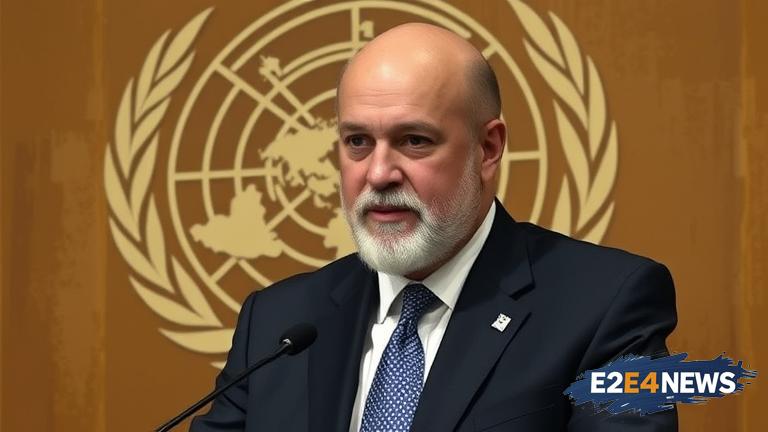The International Criminal Court (ICC) has taken a significant step in ensuring the integrity of its proceedings by ordering its Chief Prosecutor, Karim Khan, to recuse himself from a case involving Venezuela. This decision comes after allegations of a conflict of interest were raised, prompting an investigation into Khan’s involvement. The case in question pertains to alleged human rights abuses and crimes against humanity committed in Venezuela. Khan’s recusal is a result of his previous interactions and engagements with Venezuelan officials, which have led to questions about his impartiality. The ICC’s decision to have Khan step aside underscores the court’s commitment to upholding the highest standards of fairness and transparency. The investigation into Khan’s actions was initiated after concerns were raised about his potential bias, given his past dealings with the Venezuelan government. It is essential for the ICC to maintain its credibility and ensure that all cases are handled without any appearance of impropriety. The recusal of the Chief Prosecutor from this high-profile case demonstrates the ICC’s dedication to adhering to its principles and maintaining public trust. The allegations against Khan highlight the complexities and challenges faced by international judicial bodies in navigating geopolitical landscapes while pursuing justice. The ICC’s role in investigating and prosecuting international crimes is crucial, and any perceived conflict of interest can undermine its authority. Khan’s decision to step aside from the Venezuela case is seen as a positive step towards ensuring the integrity of the ICC’s proceedings. The case against Venezuela is significant, involving allegations of widespread human rights abuses and crimes against humanity. The Venezuelan government has faced international criticism for its handling of political opposition and human rights. The ICC’s investigation into these allegations is a critical step towards accountability and justice for the victims. The international community is watching the developments in this case closely, given its implications for human rights and international law. The ICC’s ability to navigate complex political situations while upholding the law is a testament to its importance in the global justice system. The decision to recuse Khan from the case also highlights the need for transparency and accountability within international institutions. As the ICC moves forward with the case, it is essential that it maintains its independence and impartiality. The Venezuela case is a significant test for the ICC, and its handling of the situation will have far-reaching implications for international justice. The ICC’s commitment to fairness and transparency is crucial in maintaining its credibility and ensuring that justice is served. The international community expects the ICC to uphold the highest standards of integrity, and the decision to recuse Khan from the Venezuela case is a step in the right direction. The case will continue to be closely monitored, and the ICC’s handling of it will be subject to scrutiny. The ICC’s role in promoting justice and accountability is vital, and its decisions have significant implications for human rights and international law. The Venezuela case is a complex and challenging one, and the ICC must navigate it carefully to ensure that justice is served. The recusal of Karim Khan from the case is a significant development, and it will be important to watch how the ICC proceeds with the investigation and prosecution. The ICC’s commitment to justice and accountability is unwavering, and its decisions are guided by a strict adherence to the law and a commitment to fairness and transparency.
